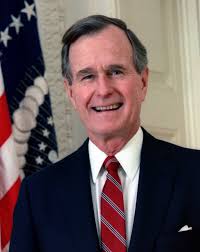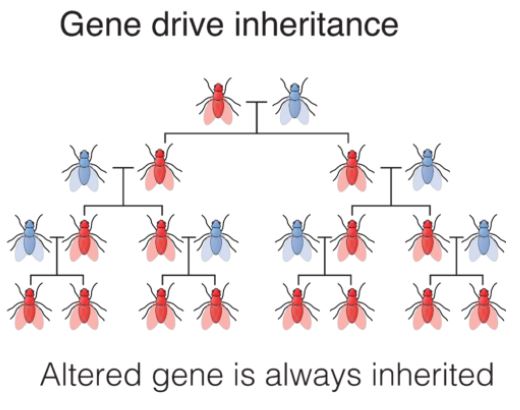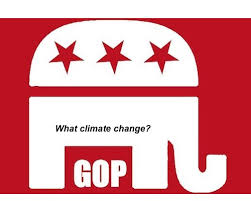International Environmental Law
When Republicans Supported the Environment: Bush 41
The GOP wasn’t always the sworn enemy of environmental protection.
Younger people today probably know about George Herbert Walker Bush (R) as the father of George W. Bush and (perhaps) as the architect of the first Iraq War. But he also had some notable environmental achievements to his credit. Here are some of his accomplishments: Air Pollution Law. The 1990 Clean Air Act Amendments were …
Continue reading “When Republicans Supported the Environment: Bush 41”
CONTINUE READINGGene Drives, Biodiversity Conservation, International Law, and Emerging Politics
My latest article is published by Global Environmental Politics
A set of new biotechnologies are being developed that will force many of us, especially those concerned about biodiversity loss, to re-examine how we understand the relationship between biotechnology and conservation. These are “gene drives,” which would be used to genetically modify, reduce, or eliminate populations of species. My paper “Governing New Biotechnologies for Biodiversity …
Continue reading “Gene Drives, Biodiversity Conservation, International Law, and Emerging Politics”
CONTINUE READINGTaking Technology Seriously in Global Environmental Politics
A special issue on new technologies is now available
I am proud to announce a special issue of Global Environmental Politics on new technologies, edited by Simon Nicholson of American University and me, is now available. We write in the introductory essay: Human beings are at once makers of and made by technology. The ability to wield tools was an essential ingredient in propelling an …
Continue reading “Taking Technology Seriously in Global Environmental Politics”
CONTINUE READINGPlanet Earth as Desert Island: “Lord of the Flies” or “Gilligan’s Island”?
Or in more technical terms, the Tragedy of the Commons? Or its inverse?
Lord of the Flies is a memorable novel about a group of English schoolboys who are marooned on a desert island. They quickly descend into savagery and violence. The book can be seen as a parable of the philosopher Thomas Hobbes’s view that human life in a state of nature is short, nasty, and brutish. But …
Continue reading “Planet Earth as Desert Island: “Lord of the Flies” or “Gilligan’s Island”?”
CONTINUE READINGChina’s Distinctive Approach to Emissions Trading
It’s getting harder for the U.S. to use Chinese inaction as an excuse.
China’s emissions trading program is slowly forward toward implementation. It’s by no means a perfect program, but it should result in significant emissions reductions. The Chinese program has some features that make it less cost-effective. Nonetheless, researchers at RFF concluded that the climate benefits will be three times the cost of emission reductions. They didn’t …
Continue reading “China’s Distinctive Approach to Emissions Trading”
CONTINUE READINGA New Report on Governing Climate Geoengineering
I suggest steps toward global governance of carbon dioxide removal and solar geoengineering
A new report on the governance of climate geoengineering — that is, carbon dioxide removal (CDR) and solar geoengineering (or solar radiation modification, SRM) — has been released. International Governance Issues on Climate Engineering: Information for Policymakers was coordinated and issued by the International Risk Governance Center, edited by IRGC’s Marie-Valentine Florin, and commissioned by the …
Continue reading “A New Report on Governing Climate Geoengineering”
CONTINUE READINGDeja Vu All Over Again
There’s a new GOP Platform, same as the old one.
It appears that the GOP won’t have a new platform this year. Instead, they’re going to stick with their 2016 platform. You could see that as steadfastness or a lack of new ideas. In the environmental arena, 2016 is still where the GOP is stuck today, celebrating fossil fuels and rejecting climate action. Here are …
Continue reading “Deja Vu All Over Again”
CONTINUE READING(Still More) Bad News on the Doorstep
New Reports Document Accelerating Wildlife Extinctions, Global Deforestation Trends
While public attention in recent weeks and months has understandably focused on the COVID-19 pandemic and the racial justice shockwaves triggered by George Floyd’s tragic death, another disaster continues apace. This week the New York Times published two alarming stories documenting the accelerating decline of our global environment. The first, entitled “Extinctions Are Accelerating, Threatening …
Continue reading “(Still More) Bad News on the Doorstep”
CONTINUE READINGLeaving Paris (from Rex Tillerson’s Diary)
Here’s how the deal was undone.
Three years ago today, Trump announced that he would withdraw from the Paris Agreement. Rex Tillerson, who was Trump’s Secretary of State about 10,000 tweets ago, was there, behind the scenes, when Trump was making the decision. Here’s what he might have written in his diary:. April 1. Talked with DT today. He said he’d …
Continue reading “Leaving Paris (from Rex Tillerson’s Diary)”
CONTINUE READINGInternational Liability for Harm: Epidemics and Pollution
What duties do countries have to avoid causing global harms?
There’s been talk lately of demanding compensation if a country’s negligence allowed a disease to spread globally. There is a long history of discussion regarding similar damage claims in international environmental law. The same principles seem applicable to disease spread. In theory, damages should be available in both cases. The core principle of international liability …
Continue reading “International Liability for Harm: Epidemics and Pollution”
CONTINUE READING











